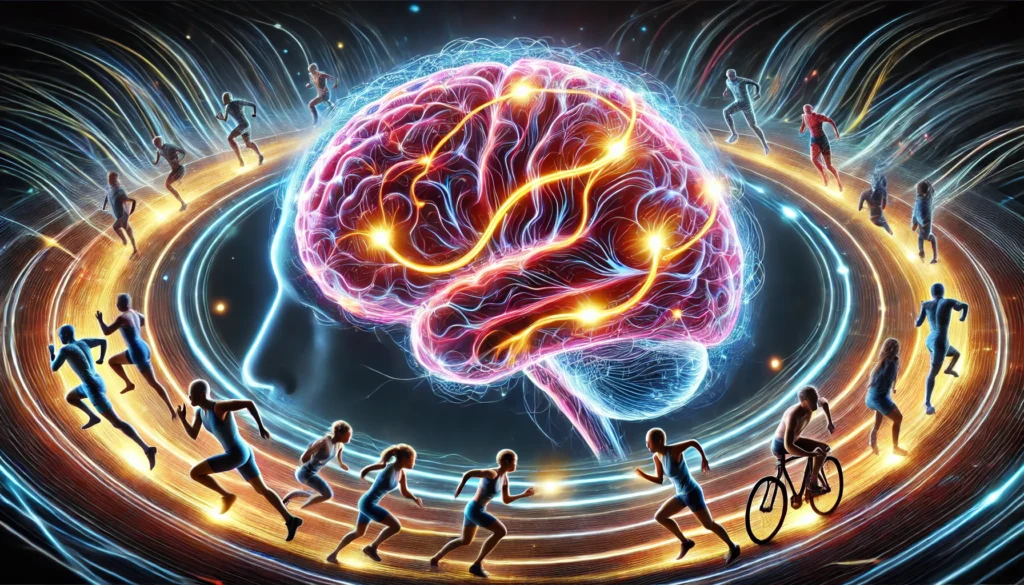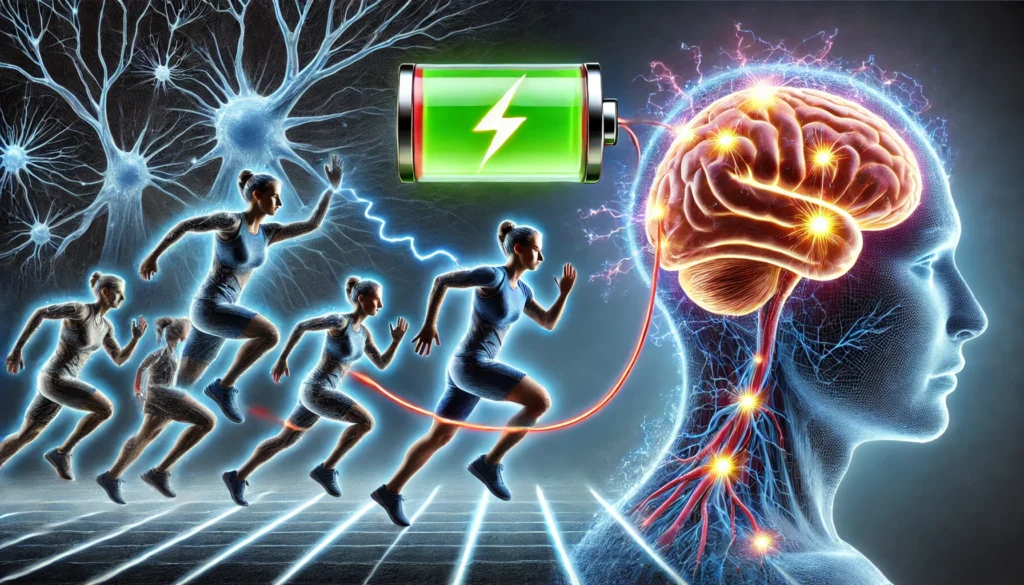In the bustling realm of health and wellness, the conversation often circles back to the profound benefits of regular exercise. But beyond the obvious physical gains, there lies a less conspicuous yet equally vital aspect: the cognitive benefits. How does exercise enhance brain function, improve memory, and perhaps even make us smarter? This article delves into the intricate relationship between physical activity and cognitive health, providing insights that are as enlightening as they are actionable.
You may also like: Understanding Memory Loss: Support Strategies
The Brain and Exercise: A Historical Perspective
Ancient Philosophers and Exercise
Throughout history, the link between physical activity and mental acuity has been recognized, albeit anecdotally. Ancient philosophers, such as Socrates and Plato, frequently discussed the importance of a sound mind in a sound body. They believed that physical fitness was crucial not just for physical health but also for maintaining mental clarity and balance. The teachings of these philosophers laid the groundwork for the holistic approach to health that encompasses both body and mind.
Medical Insights from Antiquity
Physicians in ancient civilizations, including Hippocrates and Galen, advocated for the integration of physical exercise into daily routines. They noted that those who remained physically active tended to have sharper minds and better emotional stability. Hippocrates famously stated that “walking is man’s best medicine,” highlighting the early recognition of exercise as a crucial component of overall health.
The 20th Century and Scientific Inquiry
Fast forward to the 20th century, and scientific inquiry into the effects of exercise on the brain began in earnest. Researchers started to explore the biological mechanisms behind the cognitive benefits of exercise, leading to groundbreaking discoveries about neurogenesis and synaptic plasticity. These studies provided empirical support for the long-held beliefs about exercise’s mental benefits, setting the stage for modern research in this field.
Understanding the Cognitive Benefits of Exercise
How Exercise Improves Cognitive Function
Exercise acts as a catalyst for brain health, enhancing cognitive function through various mechanisms. Physical activity increases blood flow to the brain, delivering vital oxygen and nutrients that support neuronal health and function. This influx of nutrients and oxygen is essential for maintaining and enhancing brain performance.
Moreover, exercise stimulates the production of neurotrophic factors, such as Brain-Derived Neurotrophic Factor (BDNF), which play a crucial role in neurogenesis and synaptic plasticity. These factors help to create new neurons and connections, facilitating learning and memory. The boost in BDNF levels is one of the key ways exercise contributes to improved cognitive function.
Memory Enhancement and Learning
Regular exercise has been shown to improve memory and learning capabilities. Studies indicate that aerobic exercise, in particular, enhances the hippocampus—an area of the brain critical for memory formation and retention. This enhancement is thought to be driven by increased levels of BDNF and other growth factors that improve the connectivity and resilience of neurons.
In addition to BDNF, exercise promotes the release of chemicals that support brain cell health, aiding in the formation of new synaptic connections. This can lead to better memory consolidation and retrieval, making learning more efficient. The positive effects of exercise on memory are especially pronounced in older adults, highlighting its potential to mitigate age-related cognitive decline.
Exercise and Concentration
The effects of exercise on concentration and attention are profound. Physical activity boosts the release of neurotransmitters like dopamine and norepinephrine, which enhance focus and attention span. This is particularly beneficial in environments requiring sustained mental effort and concentration.
Exercise-induced improvements in concentration can also lead to better performance in work and academic settings. By enhancing the brain’s ability to filter distractions and maintain attention, exercise supports productivity and cognitive endurance. Additionally, the regular practice of physical activity can improve executive functions, such as problem-solving and decision-making, further supporting mental tasks.

The Science Behind Exercise-Induced Cognitive Gains
Neurogenesis and Synaptic Plasticity
At the core of exercise-induced cognitive benefits is the concept of neurogenesis—the process by which new neurons are formed in the brain. Exercise is one of the few activities that promote neurogenesis, particularly in the hippocampus. This process is crucial for maintaining cognitive health and enhancing memory and learning capabilities.
Alongside neurogenesis, exercise enhances synaptic plasticity, the ability of synapses to strengthen or weaken over time. This synaptic flexibility is essential for learning and memory, as it allows the brain to adapt and reorganize in response to new information. The combination of neurogenesis and synaptic plasticity forms a powerful foundation for cognitive enhancement through exercise.
Stress Reduction and Mental Health
Exercise also plays a pivotal role in reducing stress and improving mental health, both of which are essential for optimal cognitive function. Physical activity reduces levels of the body’s stress hormones, such as adrenaline and cortisol, while simultaneously stimulating the production of endorphins, the body’s natural mood elevators.
Regular exercise can help to alleviate symptoms of anxiety and depression, creating a more favorable environment for cognitive function. By reducing stress levels and improving mood, exercise enhances mental clarity and resilience. This stress reduction is not only beneficial for immediate cognitive tasks but also supports long-term brain health.
Hormonal and Neurochemical Responses
The hormonal and neurochemical responses triggered by exercise contribute significantly to its cognitive benefits. Exercise increases the production of hormones and neurotransmitters that are vital for brain health, such as serotonin and norepinephrine. These chemicals play a crucial role in regulating mood, attention, and arousal, all of which are essential for effective cognitive functioning.
Furthermore, the release of endorphins during exercise creates a sense of well-being and relaxation, helping to combat mental fatigue and enhance overall cognitive performance. The intricate interplay of these hormonal and neurochemical changes underscores the multifaceted ways in which exercise supports brain health.
Practical Ways to Harness the Cognitive Benefits of Exercise
Best Exercises for Brain Health
Not all exercises are created equal when it comes to cognitive benefits. Aerobic exercises, such as running, cycling, and swimming, are particularly effective at enhancing brain health. These activities increase heart rate and blood flow, promoting the release of beneficial neurochemicals that support cognitive function.
Incorporating coordination and balance exercises, like yoga or tai chi, can also enhance cognitive function by improving focus, flexibility, and mental clarity. These activities require mental concentration and body awareness, further stimulating brain activity. Strength training, while often overlooked, also contributes to cognitive health by improving physical resilience and reducing stress.
Creating an Exercise Routine for Cognitive Gains
To maximize cognitive benefits, it’s important to establish a regular exercise routine. Aim for at least 150 minutes of moderate-intensity aerobic exercise per week, complemented by strength training exercises twice a week. Consistency is key, as the cognitive benefits of exercise are cumulative and long-lasting.
When creating an exercise routine, it’s essential to consider variety and progression. Incorporating different types of exercises can prevent boredom and ensure a comprehensive approach to fitness. Gradually increasing the intensity and complexity of workouts can also lead to continued cognitive improvements.

Integrating Exercise into Daily Life
For those with busy schedules, integrating exercise into daily life can be a practical approach. Simple activities like taking the stairs, going for a brisk walk during lunch breaks, or engaging in short, high-intensity workouts can make a significant difference in cognitive health.
Finding opportunities for physical activity throughout the day can help to overcome time constraints and maintain a consistent exercise routine. Incorporating movement into daily tasks, such as standing while working or stretching during television breaks, can also contribute to overall cognitive well-being. By making exercise a seamless part of daily life, individuals can enjoy the mental and physical benefits without major disruptions.
Future Implications of Exercise on Cognitive Health
Personalized Exercise Regimens
As research continues to unveil the intricate relationship between exercise and brain health, the future implications are promising. Understanding how different types of exercise affect the brain can lead to personalized exercise regimens tailored to enhance specific cognitive functions. This personalized approach could optimize the cognitive benefits of exercise for individuals, catering to their unique needs and preferences.
Preventing Cognitive Decline
The potential of exercise to prevent cognitive decline associated with aging and neurodegenerative diseases is a significant area of interest. By maintaining regular physical activity, individuals may be able to preserve cognitive function and delay the onset of age-related cognitive impairments. This preventative approach could have profound implications for public health and the management of neurodegenerative conditions.
Integrating Technology and Exercise
The integration of technology with exercise offers exciting possibilities for enhancing cognitive health. Wearable devices and fitness apps can provide real-time feedback and motivation, helping individuals to track their progress and stay engaged. Additionally, virtual reality and gamified exercise programs can create immersive and enjoyable experiences that promote both physical and cognitive fitness.

Conclusion
The cognitive gains from regular exercise extend far beyond the confines of physical health, offering a robust foundation for mental acuity, emotional resilience, and overall well-being. By embracing physical activity as a cornerstone of daily life, we not only fortify our bodies but also nurture our minds, paving the way for a future where cognitive health is as prized as physical fitness.
Incorporating regular exercise into your lifestyle is not merely an investment in your physical health; it’s a commitment to a sharper, more agile mind. Whether you’re a health coach, a science journalist, or a biohacker, understanding and leveraging the cognitive benefits of exercise can lead to a more informed and healthier life. Embrace the transformative power of exercise and unlock the full potential of your cognitive capabilities.
Further Reading:
Exercise can boost your memory and thinking skills
The Mental Health Benefits of Exercise
Cognitive benefits from high-intensity interval training may last for years
Important Note: The information contained in this article is for general informational purposes only, and should not be construed as health or medical advice, nor is it intended to diagnose, prevent, treat, or cure any disease or health condition. Before embarking on any diet, fitness regimen, or program of nutritional supplementation, it is advisable to consult your healthcare professional in order to determine its safety and probable efficacy in terms of your individual state of health.
Regarding Nutritional Supplements Or Other Non-Prescription Health Products: If any nutritional supplements or other non-prescription health products are mentioned in the foregoing article, any claims or statements made about them have not been evaluated by the U.S. Food and Drug Administration, and such nutritional supplements or other health products are not intended to diagnose, treat, cure, or prevent any disease


